“The Act of Killing” works on two levels. First off it is a compelling look at the monsters behind the 1965 mass genocides in Indonesia and how they are still in power and see nothing wrong with their past evil deeds (or present evil deeds). And secondly, this documentary stands as a testament to the transformative power of cinema and how movies can indeed change the world, even if at the rate of just one person at a time.
Sounds like fun, no?
The backdrop of this movie is a harrowing one. There’s a reason why this movie starts with a short clip from the director in which he explains how he does not expect people to “enjoy” the film per se, but instead he hopes everyone will be compelled by it and will learn from it. He says this TWICE. “I won’t say ‘enjoy the movie’ because… .” He REALLY wanted to hammer that point home. You won’t ENJOY this. But you will still probably be fascinated by it.
So about that harrowing backdrop: basically in a simplified nutshell, there was a military coup in Indonesia in 1965, and street gangs were coopted by the military to carry out some social and ethnic cleansing in the country. Pretty much anyone who was against the military or their coup was labelled as a communist and were driven out from their homes and murdered. In the span of a year, somewhere between 1 millions and 2.5 million people were killed by these gangs and the military, and the rest of the world just let this happen. And now, almost fifty years later, these folks are STILL in charge and the people who did all of these killings are themselves still alive and enjoying life and even go around bragging about their murderous exploits.
“The Act of Killing” is specifically about one guy named Anwar Congo, as well as some of his gang buddies, and they are interviewed about what they did back in ’65 and get asked to explain themselves and their actions. And ole Anwar and his buddies have no problems doing this because they are proud of their actions. All of these years later they still seem to believe that what they did was proper and correct, and they really have no reason to think otherwise because no other country in the world called them out on their heinous actions and the Indonesian people seem to hold up these people as leaders and heroes. As a matter of fact, the gangs from 1965 solidified into an official paramilitary organization known as the Pancasila Youth, and members of this group to this day walk around in their uniforms like they own the place, and they have rallies and parades honoring them and stuff, so why should ole Anwar feel like he’s done anything wrong when the rest of the country deifies him for this?
Now of course all the people that would hate these groups and murderers were themselves murdered, so really there is no one left internally to call these guys out on their bullshit. So when this documentary filmmaker named Joshua Oppenheimer started asking these guys to talk about the murders they committed and to explain how everything was done, Anwar and his buddies were all too eager to agree to such an assignment. They even ended up taking the movie over in a way, insisting that they do recreations of some of the horrific scenes of their past in the style and manner of the Hollywood movies they grew up watching and idolizing, casting themselves as the heroes of these scenes, intending to control the narrative of this documentary so that the film will ultimately represent “the truth” as they see it.
So “The Act of Killing” sort of becomes a weird meta-documentary, because the movie also documents how Anwar et. al. went about putting together these scene recreations, and discussing what the movie should be about and how they will all be seen when the movie is finally released to the world. We see the killers discuss how scenes should be staged, what certain things mean, sitting in themselves for the victims in these scenes, going out and finding people off the street to cast them as “communists.” Then finally we get to see them filming the scenes and then clips from the scenes themselves, and each recreation is kind of harrowing and hard to watch, as all of these non-actors and non-professionals are still somehow accessing those emotions and memories from the time period and each scene just comes across as intensely real, so real that some of the children and older people who took part in the recreations had trouble “shutting off” after the scenes were over, and kept crying and blubbering, unable to calm down.
These recreations end up being the undoing of Anwar Congo and his tough exterior, however. Early on in the movie he admits that all the killings did indeed leave him with nightmares and he did have a bad feeling deep inside him from those violents days in the 60s, but he talks about these experiences like it was a drop he didn’t like going to but did it anyway, as if the actual murders didn’t bother him all that much, it was just that he did alot of them in the name of his government. Anwar talked about drinking and smoking marijuana and taking ecstasy to help feel better over the years, and then he does a dance to show that he has few worries and troubles, regardless of his past.
But then he has to rewatch his own recreations, and seeing himself perform some of these acts in the third-person really shook him up, it made him see himself in a different light for the first time, and this causes his hard shell to crack. And finally destroying this shell is a scene in which Anwar plays one of the victims of this genocidal purging, and this is the final straw, the one that made him realize that what he did all those years ago might actually be a bad thing. And watching this man come to this revelation is about as fascinating as it gets, it really doesn’t get any more real than watching a murderer’s face as he comes eye to eye with his own horrible past and he actually sees it for what it was for the first time in his life. Anwar complains about having nightmares because of what he did, but finally he realizes why he has nightmares, and it’s not because he did a brave and just thing in killing so many people, but because what he did was so damned horrible.
There are other details in this movie that makes it all that much more interesting to watch. There’s a scene in which Anwar and his buddy go around a market and they shake down vendors and business owners for money, insisting that they “need more than normal this time” so they can put on a big parade and rally for the Pancasila Youth and to honor the leaders of this group, but it is more than obvious that these guys shake down these business owners on the regular, and probably for everything ranging from “community funding” to “protection money.” And then later in the movie, one of Anwar’s friends is convinced to run for a government position, so he goes around to the same community and asks the exact same people for their votes in the upcoming elections. But then when he does this, the people don’t care about the shake downs and his status as a murderer and gangster, but instead all they care about is receiving money and bribes from the candidates, as buying votes has become customary and everyone has their hand out, ready to see what the candidates are going to give them in exchange for their votes. The corruption has become the norm in Indonesia.
“The Act of Killing” is a pretty stunning documentary because of how different it is in terms of allowing the film’s subjects to dictate how the movie actually came out, and how the movie documents its own making. It’s as if Morgan Spurlock decided to make a film about genocidal murderers instead of fast food value meals and San Diego Comic Con and movie funding – it is inventive, original and informative, not only about what happened in Indonesia and how it persists to this day, but also about the nature of people and how great evil can live inside every day folks, folks who can rationalize what they do in the most scary ways, which is really the most terrifying thing of all. It’s not that Anwar Congo is a mustache-twirling, cackling, lusting for blood, openly and obviously evil person, but instead he comes across as a pretty normal dude, who likes to dance and smoke a little weed and get drunk with his buddies and sing songs together, and who just happens to have murdered thousands of people by his own hands and without legal consequence.
The consequences to his soul and psyche, however…now that’s a different story altogether. And “The Act of Killing” helps galvanize those spirital consequences not only for us but for Anwar as well.

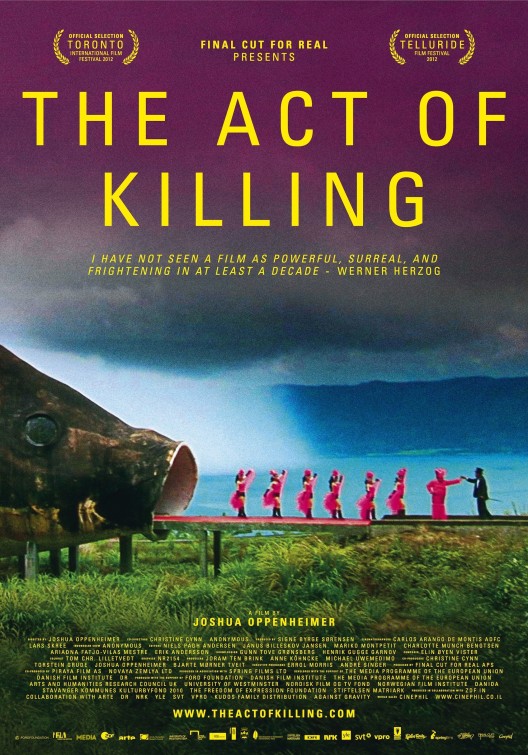
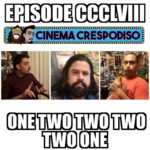 #358 – One Two Two Two Two One
#358 – One Two Two Two Two One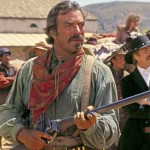 Netflix pick for 7/1/13 – ‘Quigley Down Under’
Netflix pick for 7/1/13 – ‘Quigley Down Under’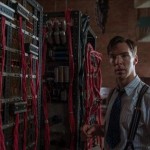 Review: ‘The Imitation Game’
Review: ‘The Imitation Game’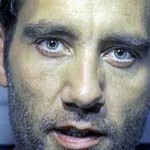 Netflix pick for 4/4/16 – ‘Inside Man’
Netflix pick for 4/4/16 – ‘Inside Man’
Leave a Reply
You must be logged in to post a comment.